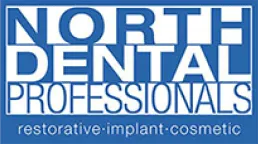At North Dental Professionals, we understand that your smile is not just about aesthetics but also a vital indicator of your overall well-being. That’s why we are proud to offer comprehensive oral cancer screenings as a crucial part of our dental services for those in the Chicago and Skokie, Illinois, area. Our dedicated team of dental professionals is committed to early detection and proactive care to ensure your oral health remains in the best possible condition.
Oral Health Education
We believe that education is key to maintaining good oral health. Dr. Chaiken and his team provide valuable information on the importance of oral hygiene. Brushing and flossing regularly can prevent many common dental problems. We also offer dietary recommendations. Eating a balanced diet with limited sugary foods and drinks helps keep your teeth and gums healthy.
Emergency Dental Care
Dental emergencies can happen at any time, and it is important to address them quickly. Whether you are experiencing a severe toothache or have a broken tooth, Dr. Chaiken and his team are here to help. We provide prompt and effective emergency dental care to relieve pain and restore your dental health.
Our Oral Cancer Screenings
Oral cancer can manifest in various forms, and its early detection is vital for successful treatment. Our comprehensive approach involves a thorough examination of your oral cavity, including the lips, tongue, cheeks, gums, and throat. We pay attention to even the smallest details, leaving no stone unturned to ensure a comprehensive assessment of your oral health.
Our friendly and compassionate team will take the time to understand your medical history, lifestyle factors, and any potential risk factors associated with oral cancer. We believe in open communication and encourage you to ask questions. This makes sure you are well-informed and comfortable throughout the process. The state-of-the-art screening technology we use allows our dentists and team to diagnose oral cancer in the earliest possible stages. This allows you to receive the care you need to regain your oral and overall health.
We urge you to schedule an appointment for an oral cancer screening to ensure the ongoing health and vitality of your smile. Early detection can save lives, and our dedicated team is here to support you every step of the way.
Cosmetic Dentistry
If you are looking to enhance your smile, our cosmetic dentistry services can help. Teeth whitening is one of our most popular treatments. It can brighten your smile and boost your confidence. For those who need more extensive improvements, veneers are an excellent option. These thin shells are custom-made to cover the front surface of your teeth, giving you a flawless smile.
Misaligned teeth can affect your smile and your oral health. Our cosmetic services, including Invisalign, can help straighten your teeth. Invisalign offers a more discreet option with clear aligners that are easy to remove. Our team can give you the straight smile you desire.
Restorative Procedures
Sometimes, teeth can become damaged or decayed. When this happens, our restorative dental procedures can return your teeth to their natural function and appearance. Fillings are a common way to repair cavities. We use durable materials to fill in the gaps left by decay. If a tooth is more severely damaged, a crown may be necessary. Crowns are custom-made caps that cover the entire tooth, providing strength and protection.
Schedule Our Services Today
Your oral health is our top priority at Bright Direction Dental. Dr. Paul Chaiken and his dedicated team are here to provide you with the highest-quality dental services. Do not wait to take care of your dental needs. Schedule your appointment with us today and take the first step towards a healthier, brighter smile.

